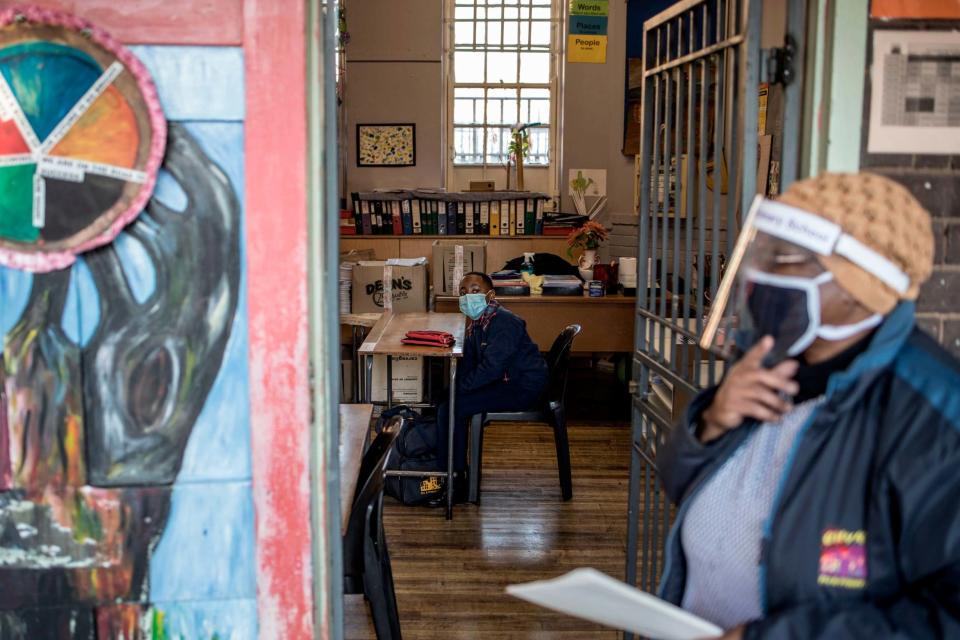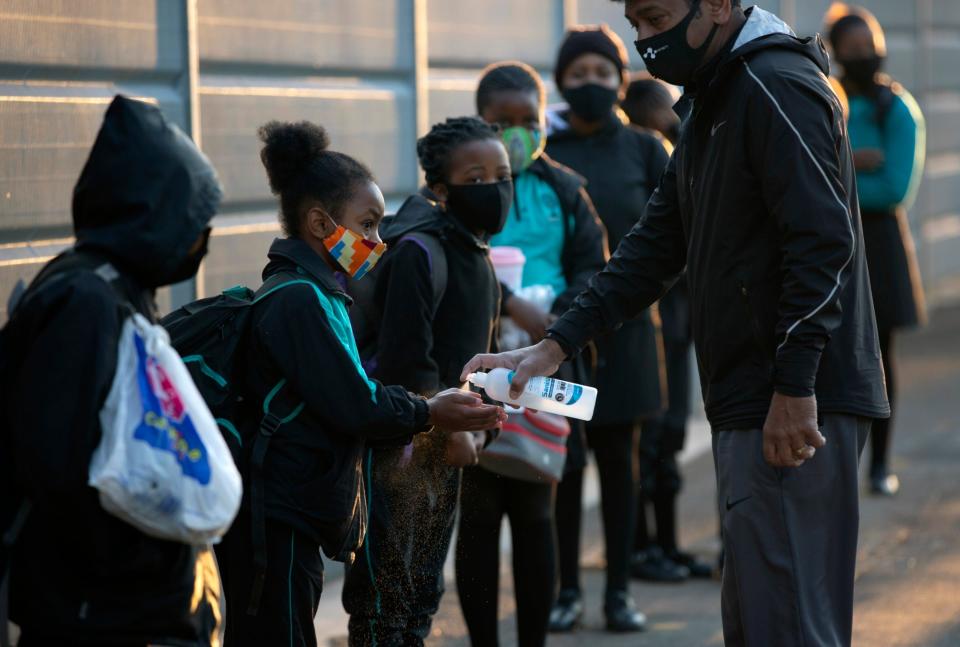Scientists suggest new theory over Africa's low Covid-19 death rate

Poverty-stricken communities in Africa may have developed greater immunity to coronaviruses, scientists have suggested.
The continent's reported death rates are a fraction of those seen across Europe.
Africa has seen more than 1.2 milion cases since the start of the pandemic, and around 30,000 deaths, according to latest data from the Africa Centres for Disease Control and Prevention.
According to the European Centre for Disease Prevention and Control, nearly 1.3 million cases have been reported in the EU/EEA and the UK, with 182,183 deaths.
Until now, scientists have suggested this disparity is likely to be a result of African countries having younger populations than their European counterparts.
The Covid-19 strain of coronavirus has proved to be more lethal in older people, with younger people more likely to be asymptomatic carriers of the disease, or to experience mild symptoms.
South Africa was hit particularly hard by the first wave of the global Covid-19 pandemic.

The country has recorded more than half of the Covid-19 infections in Africa, with more than 600,000 confirmed cases. There have been around 11,500 deaths reported.
In comparison, the UK has reported 339,000 confirmed cases, far fewer than South Africa, but saw more than 1,000 deaths a day during two weeks in April, with 41,514 total deaths since the start of the pandemic.
Despite concerns over potential under-reporting of deaths, the rate is significantly below that seen in European countries with high numbers of confirmed cases.
Now experts in South Africa have suggested there may be another reason for the high survival rates.
Many of the country’s citizens live in poverty in crowded conditions where social distancing is impossible.
Professor Salim Abdool Karim, the head of South Africa's ministerial advisory team on Covid-19, told the BBC that age may not be the crucial factor.
He said there is a new hypothesis, that he claims is supported by US scientists, that people living in such conditions, where they are exposed to a wide variety of viruses including coronaviruses, have developed “some level of pre-existing cross-protective immunity”
He told the BBC: “[It] might explain why the epidemic didn't unfold.
“The protection might be much more intense in highly populated areas, in African settings. It might explain why the majority [on the continent] have asymptomatic or mild infections.”
He added: "I can't think of anything else that would explain the numbers of completely asymptomatic people we're seeing. The numbers are completely unbelievable.”

A team at the Vaccine and Infectious Disease Analytics unit at Baragwanath hospital in Soweto plans to test samples of blood cells to test the theory, the BBC reported.
The hypothesis would not account for high death rates seen in Brazil - another country where large numbers of people live in crowded conditions in favelas, and would therefore be thought to have been exposed to similar virus strains.
South Africa saw a large impact on its hospitals during the first wave.
South African president Cyril Ramaphosa put in place tough lockdown restrictions, including a controversial ban on sales of alcohol and tobacco, that were only relaxed fully in mid-August.
Watch the latest videos from Yahoo UK
Read more
Portugal 'to go back on travel red list' as rapid tests give hope-LIVE

